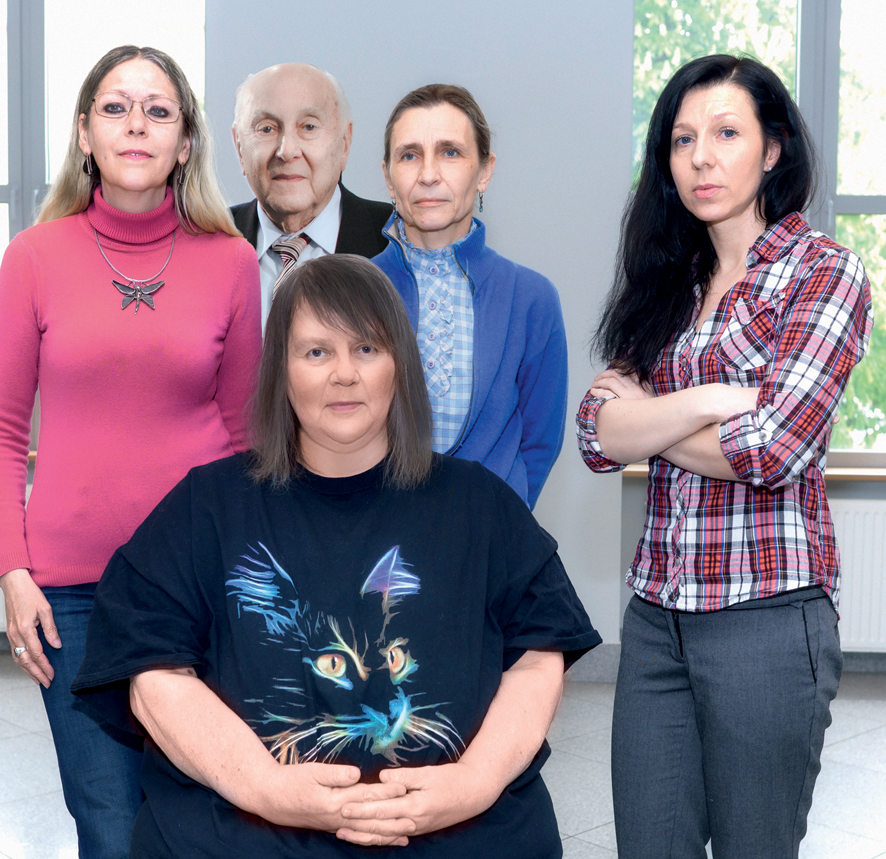Head of laboratory

Research profile
We work in the field of ethology, sociobiology and social neuroscience of social insects, studying various ant species including facultative and obligatory social parasites and their slaves. We lay stress on comparative research which allows us not only to broaden our knowledge about interindividual interactions displayed by social insects, but also to gain a better understanding of biological roots of social phenomena encountered in humans. We are particularly interested in the analysis of multidirectional information flow between various levels of organization present in insect societies, and in ontogeny and neurochemical correlates of ant aggressive and prosocial behaviour. Our current research is focused on the analysis of the impact of neurochemical, endocrine and social causal factors on various forms of ant aggressive behaviour (both overt and ritualized aggression), and on friendly social behaviour of these insects (various worker-worker interactions including the so called rescue behaviour, i.e., providing help to endangered individuals, various forms of brood care). We are also interested in the role of social context in the control of expression/suppression of various elements of ant behaviour. In particular, we try to unravel the effects of behavioural status (nurse versus forager) on behaviour and physiology of ant workers, and to identify behavioural, morphological, physiological and neurochemical correlates of ant behavioural maturation and behavioural reversion (return of a forager to the behavioural status of a nurse).
Current research activities
- ontogeny of ant behaviour: behavioural correlates of behavioural maturation and behavioural reversion
- interrelationships between worker behavioural status, responses to brood and responses to illumination conditions in workers of the ant species Formica polyctena and F. cinerea
- role of neurochemical, hormonal and social factors in the ontogeny of aggressive and defensive behaviour of workers of F. polyctena
- effects of chronic oral administration of the biogenic amine octopamine and of caffeine on various patterns of aggressive behaviour and friendly social behaviour displayed by workers of F. polyctena during laboratory behavioural bioassays
- factors influencing rescue behaviour of ants from various species and subfamilies including facultative and obligatory social parasites and their slaves
- cognitive aspects of rescue behaviour in formicine and myrmicine ants
- effect of training on the defensive behaviour and rescue behaviour shown by workers of F. polyctena
- interactions between workers in natural mixed ant colonies
- long-term impact of intensive agriculture on the survival of the red wood ants of the Formica rufa group
- ant welfare in laboratory and field conditions
- general rules underlying decision making processes
Selected publications
Miler K., Symonowicz B., Godzińska E. J. (2017) Increased risk proneness or social withdrawal? The effects of shortened life expectancy on the expression of rescue behavior in workers of the ant Formica cinerea (Hymenoptera: Formicidae). Journal of Insect Behavior, 30: 632-644.
Mabelis A., Korczyńska J. (2016) Long-term impact of agriculture on the survival of wood ants of the Formica rufa group (Formicidae). Journal of Insect Conservation, 20: 621-628.
Godzińska E. J. (2016) Human and ant social behavior should be compared in a very careful way to draw valid parallels. Behavioral and Brain Sciences, 39: e98.
Czechowski W., Godzińska E. J. (2015) Enslaved ants: not as helpless as they were thought to be. Insectes Sociaux, 62: 9-22.
Godzińska E. J., Wróbel A. (2014) Capturing the essence of decision making should not be oversimplified. Behavioral and Brain Sciences, 37: 85.

